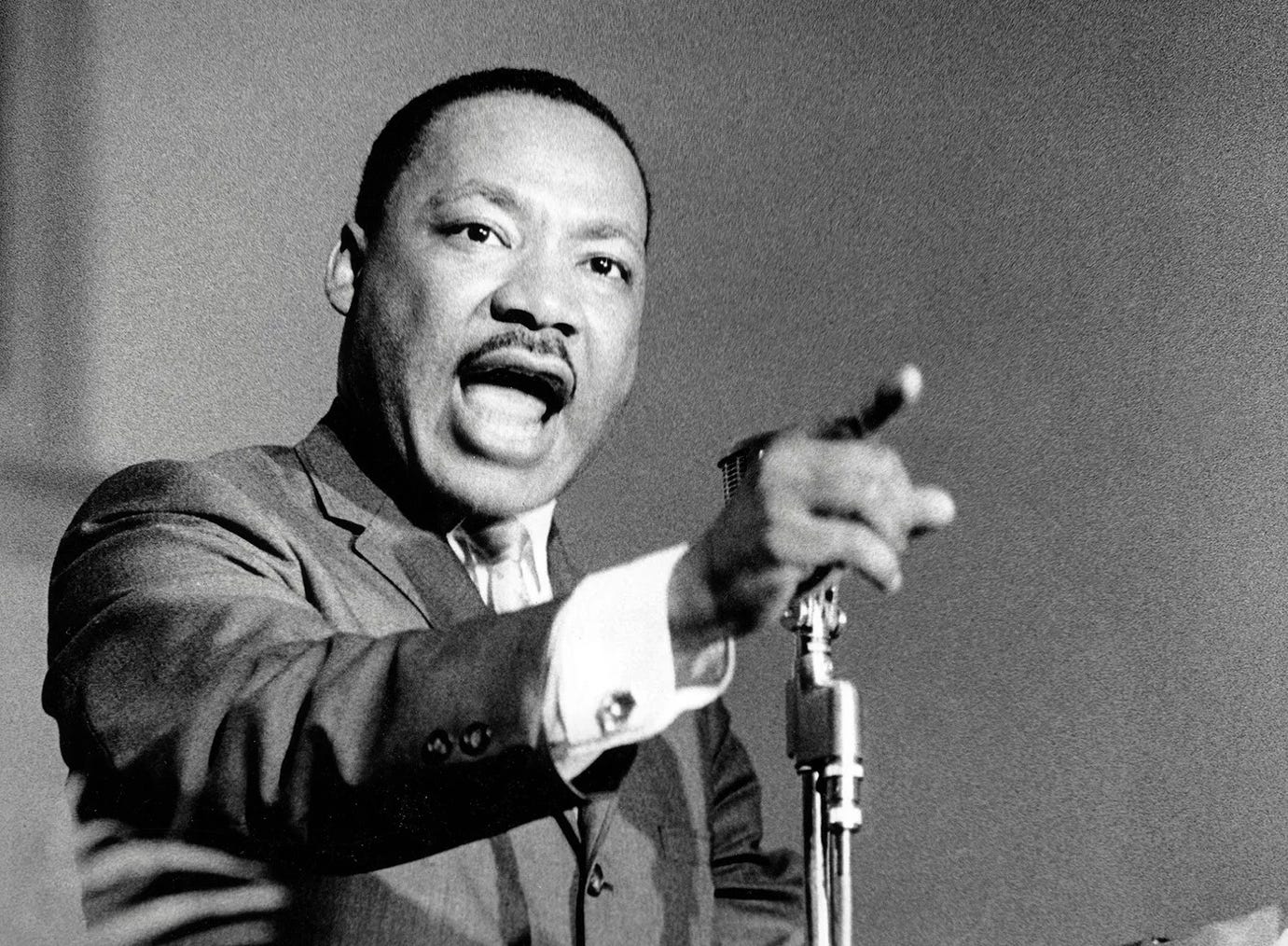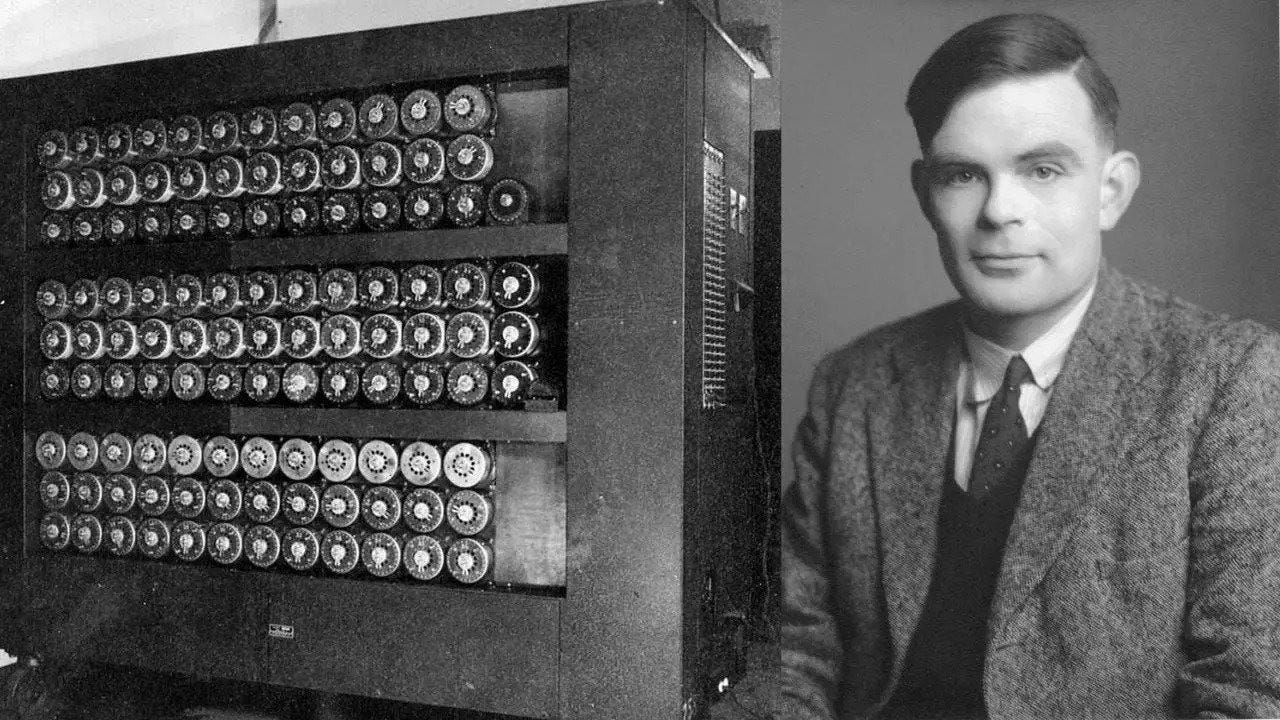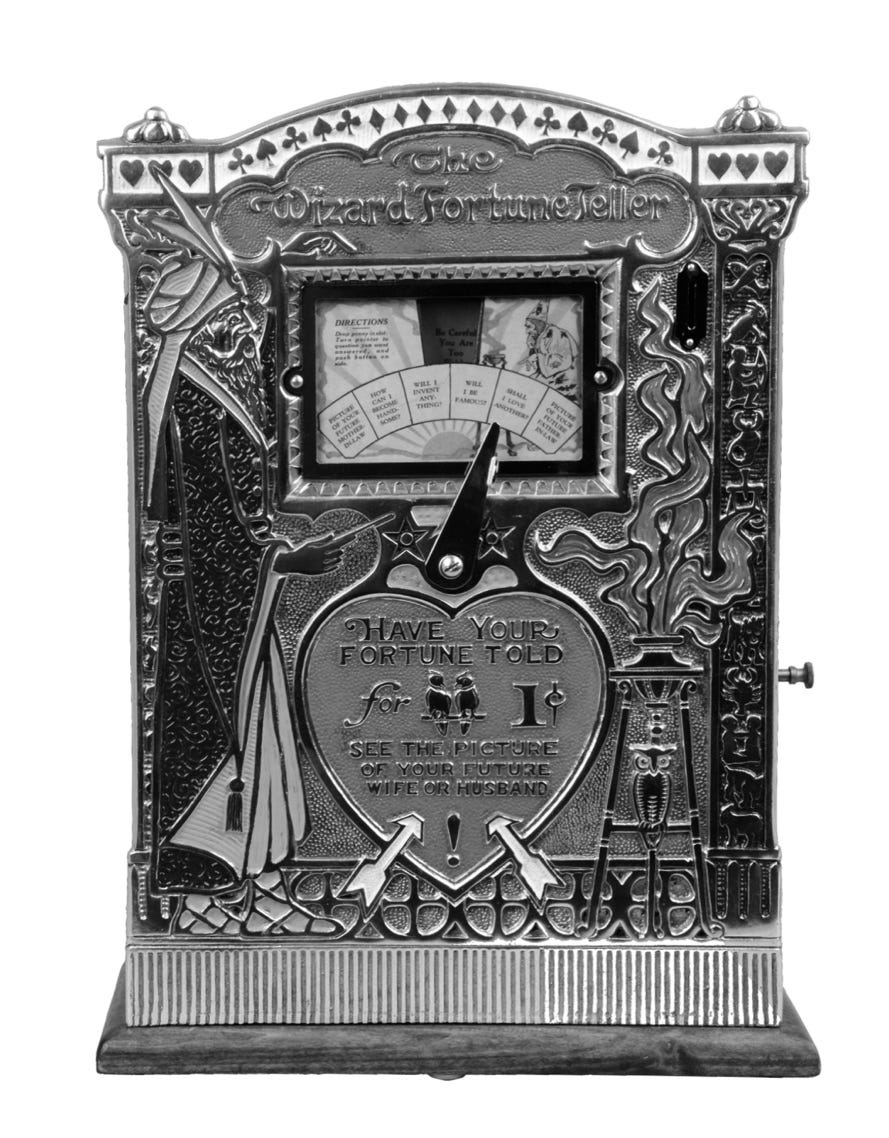Dr Martin Luther King Jr
This article is about who gets chosen to publish and implement ideas and how this has changed. When we looked at Freud as icon no 14, it seemed that his ideas were not unconnected with his own personal struggles and motivations. But when we read a scientific journal today, do we wonder what kind of person came up with this research question? When we see a leader bring sweeping changes, do we ask if their ideas have something to do with their personal struggles? There is a sense that we accept ideas and solutions based on their merit as ideas, without a process of judging the person offering the idea. But this has not always been the case.
Selecting big ideas
In the 18th century, anyone could have a big idea. Anyone could change the way the world thinks. Anyone, that is, who had become a scientist, an author or a political leader. Anyone could become a scientist, author or leader, as long as they had a good education. And the right connections. And anyone could have these things. Anyone, that is, as long as they came from a good family. Otherwise, they stood little chance.
In the age of industry, this role of vetting individuals became shared with employers. A vocational community – for example manufacturing or law, could endorse a person for influence. If someone had a big idea, it no longer mattered so much what family they came from. It might not be the influential father offering the chief endorsement, but the CEO who had promoted them.
The age of ‘personality’
But what was this thing called a good family? It was those already in power. Who were the people who rose to the top of an industry? Businesses employed people who looked like them. The idea of good character developed so many problems. It meant white, it meant heterosexual, it meant east coast, it meant conservative, it meant liberal, it meant third generation immigrant but not second. It was so corrupted. It was so hijacked. It had to go. The idea of ‘poor character’ had become a vehicle of prejudice.
The shining ‘age of personality’ offered a solution. Even the vetting processes of a vocational community could now be discarded. By 1936 Dale Carnegie had published ‘How to Win Friends and Influence People.’1 It was irrelevant which family you came from, or what kind of vocational community had tested you out. All that mattered was your own one-person performance, and the impact it had on its audience. Everyone had the chance now to sell their leadership or their solution to a problem, or their big idea.2
In the age of personality, you could become a great scientist. You could be a great thinker. A leader. Regardless of your journey or the family you came from. Yes, John Lennon had an ‘artistic temperament’, but his songs were exceptional. Monroe and Elvis sadly succumbed to the ‘temptations of success’, but we got to keep their back catalogue. A leader may have affairs. They may attract conflict. A leader may have a history of dishonesty. But these were personal matters. Gradually, we came to separate the output of the adult from their personal and relational functioning. The idea, and the container of the idea were judged separately. This was a good thing. Now that we were being honest, the good family had not always had the best ideas. And we had started to suspect that they weren’t quite as ‘good’ as their reputation suggested.
Support for this new free market of ideas accumulated. In March 1940, Alan Turing turned the fortunes of the second world war by cracking the German enigma code. He was gay. In August 1963 Dr M. L. King made one of the greatest American speeches in history. He was black. In the 2024 US election, America had access to information about what Harris was like to work with, and information about what Trump was like to work with. Trump was elected. One way of interpreting the split in the US around Trump during the election was that there were a group of people focussing on his ideas, regardless of character, and a group of people focussing on the man’s character, regardless of his ideas. An old set of principles about good character fought it out with the new order: the free market of ideas, removed from their human containers.
If this is at least part of what was happening, we need to ask a question: when we need ideas and solutions, does the relational, social and emotional functioning of the person offering the idea matter? It seems that Aristotle, for one, thought it did.
Alan Turing with his code breaking machine
The ethics of ideas and decision making
The philosophy of ethics has a lot to say about how to select ideas as solutions to complex problems. There are at least three completely different models of how to select good ideas.
One kind of theory (such as Kantianism) is based on principles or rules3. If the idea is based on certain principles, then it will be ethically sound. For example, telling the truth is just the right thing to do3. Another kind is consequentialism or utilitarianism. This approach judges the idea according to its impacts. Not telling the truth might have bad consequences. This consequentialist approach fits well with an age in which individual charismatic performers convince us of the predicted consequences of their ideas. We can see one problem with consequentialism in a two- or three-party political system. We often don’t see the consequences of complex ideas for a long time. By the time we do, we have implemented a hundred other ideas from the same charismatic individual. And after an election cycle, any consequences we see are being frantically spun in our news feed by their successors or rivals. In both these approaches the ideas themselves are the focus of judgment. In the modern age, we try not to judge people.
But Aristotle thought otherwise. In the model of ethics he proposed, the acid test of good ideas and complex decisions is not the consequences, or the principles being used. The most important requirements are concerned with the character of the person proposing the idea or making the decision. What was Aristotle’s definition of good character? His catalogue of ‘virtues’ ranged from magnanimity, agreeableness and friendship to scientific knowledge, prudence, technical skill3. “The virtuous person thus cultivates such right motives as honesty, courage, faithfulness, integrity and trustworthiness in order to follow the correct course in particular situations”3. This is not about judging ideas. It is about how to select a good producer of ideas.
Is this idea of the ‘virtuous’ thought leader completely obsolete? Or is there common ground between what Aristotle called ‘virtue’ and what the 19th century west called ‘good character’? And is good character the opposite of what the 20th century west called ‘characterological problems’? Because whilst ‘character’ has become corrupted as an idea, ‘characterological problems’ has become known in the 21st Century as personality disorder. This character-based model of ethics says that we should look less at the message, and more at the messenger. This is unfashionable. But for me, a clinical psychologist in a treatment service for personality disorder, I see not only bathwater, but also a baby.
What if, long ago, these selection filters - the ‘good family’ and the vocational community endorsement – had a good intention? What if this intention, before all of its corruption, had some connection with what Aristotle argued? Let’s take the endorsement of an industry. How did a person gain this endorsement? In order to get to a position of influence, they had become senior in the workplace. They had shown up for work. They had been a reliable person. Not prone to lying. They had applied themselves to tasks. They could manage stress in ways that did not cause them more stress. Their goals didn’t change without warning. They were ok to work with in a team. They could be authentic at social events. And yes, they were likable. Such a person could rise now outside their industry and become a leader – in politics, in science, in the church. The ideas now received from them were coming from someone who had been selected, through a series of filters. And that seemed to be just how things work out for successful people.
What if these selection processes were more than systems for holding onto power? What if they also grew out of attempts to select for adaptable, resilient high functioning emotional and relational strategies in those who lead and influence? We could say this in another way: What if they were attempts at removing personality disorder from access to leadership? Other mental health problems often exclude themselves – affecting the person globally, intellect included. Narcissism in particular is not just a perpetrator set of traits. It also performs. It needs a platform. And it seeks to be influential.
Psychological services treating personality disorder normally work with people who are asking for help because they are functioning poorly. Treatment of such characterological problems is about helping people to maintain human connections and to manage stress in a way that does not snowball into more stress. It is about how to regulate themselves in ways that do not lead others to suffer. It might be about becoming a more reliable person. It might be about the person’s ability to deal with reality. We have learned to be careful, but this is not about imposing a particular value set. Given different names, some of these so-called ‘virtues’ of human functioning are vital for sustained, productive adult living. Without them, failed relationships, doomed schemes and suicide rates go up. In these services, we have been in a prime position to learn that ‘character’ or personality functioning is distinct from such characteristics as sexual orientation, gender or race.
Narcissism falls under this heading of characterological or personality-based problems. In narcissism specifically, information, knowledge and ideas mainly serve one purpose: to maintain an idealised image, persona or façade. This is a constructed idealised version of self which is unconnected with the person’s authentic self. This is an attractive, performing and ideas-producing face of a set of problems that also have, sometimes, a perpetrator face, featuring a lack of emotional connectedness, dishonesty and exploitation. Most personality disorders feature problematic decision making. Narcissism specifically is associated with high-risk ideas born out of a lack of collaboration and negotiation and dishonesty. It is true that some of our most valued ideas were born out of narcissism. But was it a mistake to make a principle of editing out completely the person – the container – from the idea?
The idea and its container
This article is about the level of emotional and relational functioning in those whom we select to lead and promote ideas. We don’t have to confuse this with sexuality, gender, race or culture. Perhaps the time has arrived to make clear the distinctions between such characteristics and what we call personality functioning.
When the ‘good’ family is no longer a vetting device for selecting leadership, we enjoy a fairer economy of ideas. And I am not trying to argue specifically for a return to the age of character. But we may, over time, have removed a filter which selected for thought leaders with resilience, emotional connection and prosocial functioning. Instead, we have come to rely on our individual judgment of ideas and decision regardless of the character of the person who offers them. Presenting their big idea is a way of relating to us. But how this person relates to people otherwise, is judged unimportant. At the same time, we have come to select for narcissism – something associated with skills in persuasion and seduction. As we evaluate big ideas, in our 21st century isolation, and when these ideas are isolated from their narcissistic containers, what are the chances that we are being seduced?
Disclaimer: All views expressed are my own unless otherwise stated, and do not necessarily reflect the views of any institution I have been employed by. The content here is for information and should not be interpreted as advice.
Notes
1. Carnegie, D. (1936). How to Win Friends and Influence People. Simon & Schuster.
2. Susman, W. (2003). Culture as History: The Transformation of American Society in The Twentieth Century. Washington DC: Smithsonian Institute Press.
3. Bloch, S. & Green, S.A. (2006). An ethical framework for psychiatry. British Journal of Psychiatry, 188 (7).





I would like to take this thought further and claim that in this day and age, it is the narcissistic personality disorder people who become successful and regular people are shamed to believe that they are less than. This shaming could lead to career loss and cancellation of sensitive people who are in turn diagnosed as mentally ill. Meaning they can’t fit in this world. The options are then to lose your careers and be told that we are good for nothing and need to isolate ourselves or become better individuals so as to better fit in this society. For instance people who survive a sexual abuse or workplace sexual harassment are then sidelined and live their lives as losers and don’t get an opportunity to ever enhance their self esteem. They can no longer face this world and even fall in their own eyes and can go down a spiral and have no way to prove themselves as they have been cancelled. How will such people find a platform to prove themselves. I am one such person who lost her career to extreme patriarchy and authoritarianism in the scientific community in India. I still have not recovered my self esteem fully even though I received a green card as an extraordinary scientist. I still don’t have a job and was considered a failure and poor by my family members. What would you say to such people Dr. Rogoff?
Your argument, which I agree with, is fascinating in the American context. Here we glorify big ideas as part of the national culture: the ruthless CEO, the persistent and rapacious entrepreneur, the larger-than-life politician who uses up and spits out people, including his own wife (rarely if ever the husband). We use these images to attract immigrants and ingenuity. Even US experts in narcissism claim that “we need these people” even though many in leadership positions don’t exhibit personality disorder.
Then we wonder why our leaders aren’t serving us. This isn’t a specifically American problem, but I suspect we will have to work hard over many years to disentangle the narcissistic personality from our national self-conception.